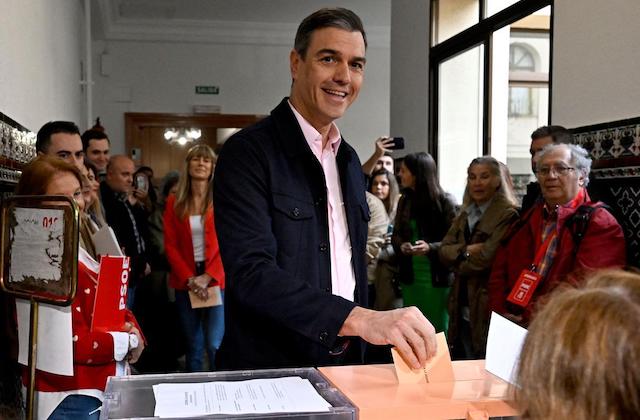Morgan Stanley| With the general elections just around the corner (July 23rd), Rob Pulleyn has published a report in which he discusses the possible outcomes of the elections (and therefore possible energy policies) and their implications for utilities with exposure to Spain. Overall, he believes that the impact will be significant, but in his baseline scenario, he believes that Spanish utilities will generally do well as a result of the elections. That said, the possible scenarios are:
1: A PP-VOX coalition: Both parties have indicated their support for nuclear power in their energy policies, with VOX even indicating support for the construction of new plants. If implemented, this policy (expansion of existing and/or construction of new plants) would be a clear positive driver for Iberdrola and Endesa given their exposure to nuclear energy. Regarding energy intervention, no party has shown signs of a strong intention to intervene, so under this scenario, Rob believes that the three current intervention measures will remain in place until the end of the year, but not beyond, which he expects to generate a positive market reaction.
2: The same government as the current one (PSOE+ Sumar): Based on the statements of both parties, and the energy policy of the current government, under this scenario, Rob sees a higher likelihood of continued intervention on energy prices, margins and electricity prices. In such a case, he expects a negative market reaction, as it would prolong uncertainty about policy and profitability. However, such an outcome would imply support for the development of renewables, but also the planned closure of nuclear plants between 2027 and 2035. Support for renewables would favour Acciona Energía, and then Endesa and Iberdrola.
3: An absolute majority for the PP: The PP’s views on energy policy suggest a favourable stance on both renewables and nuclear, as well as a stable regulatory environment (given the anti-intervention comments), which would be favourable for Spanish utilities. Thus, Iberdrola and Endesa would benefit from a possible extension of the life of nuclear plants (given their exposure to nuclear). In addition, the PP has made comments against market intervention in recent years, so in the event that intervention is ended, most of the stocks under hedge would benefit: Iberdrola, Endesa, EDPR and Acciona Energía. Finally, Rob points out that the PP has also shown its support for interconnection and network modernisation plans, which would be positive for network operators such as Redeia and Enagás.
4: The PSOE governing alone, with no coalition: The PSOE’s energy policy seems favourable for the development of renewables, and points to a milder intervention scenario than the coalition with Sumar. However, such a result could also prolong the uncertainty surrounding energy market intervention. Similarly to the PP, the PSOE has indicated its support for interconnection plans and grid modernisation (positive for Redeia and Enagás). Finally, and with respect to nuclear, the PSOE’s energy policy continues to support the closure of nuclear plants. In this scenario, PSOE statements so far support the planned closure of nuclear plants by 2027-35.





